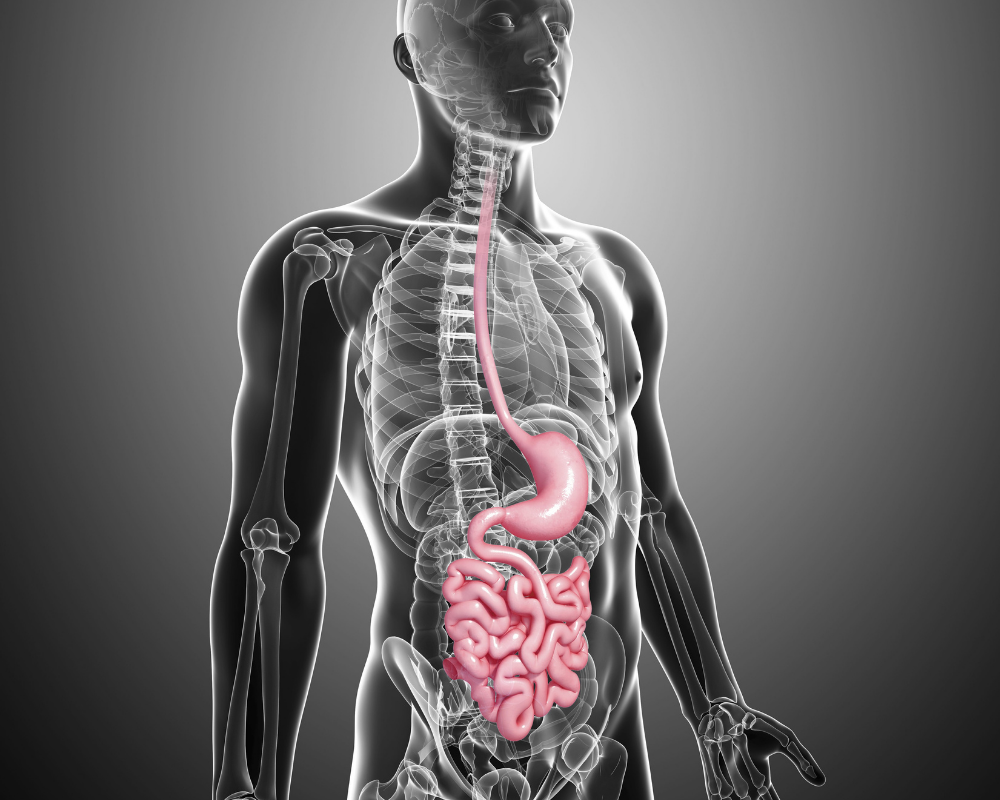Here is an email correspondence where I address a question I have been asked often, “how can hydrogen water benefit us when our guts flora produces so much hydrogen gas daily”. I have been asked this question or variations of this question many times over the years. It is a great question and truly we need more research to help us understand the apparent enigma between endogenous H2 and exogenous H2 (e.g. hydrogen water). In the email reply, I address our current understanding of how this works and what the research states about the topic. I can’t provide all the answers to this question but I do believe my reply to this client will help us all have some clarity about the current research and even some basic human biology.

Hello,
Sorry for my delay in response. I take 2-3 weeks off from work at the end/beginning of the year to spend with my family. I reviewed your email and will try to address your question. You have a great question by the way.
Q: “Since water is absorbed in the small intestine after mixing with acid etc in the stomach after a few hours, how much ingested H2 remains to actually be absorbed? The large intestine generates H2 and other gases so it seems to me that the H2 in the water would mostly be reacting in the gut long before being absorbed into the blood.”
A: This question involves the enigma of the intestinal endogenous H2 production and exogenous administration of small amounts of H2 and it’s observable benefits. This is a puzzle researchers are still investigating and we have more unanswered questions than we do answered. That being stated, I think I can provide some insights that may be helpful, and what the research is suggesting about the topic.
First, I think it is important to discuss the pharmacokinetics of hydrogen-rich water and some basic biology. Researchers have demonstrated that hydrogen gas via hydrogen-rich water can enter systemic circulation within 5~15 mins after consumption. This will spike the H2 blood/plasma concentration and eventually return to basal levels in 60~90 mins. Therefore, to address your first question, it will not take hours for the hydrogen gas dissolved into the water to diffuse submucosal blood vessels and enter the portal circulation.
“Ingestion of HRW reaches a peak in 5–15 min and returns to baseline levels 45–90 min after administration depending on the administered dose [110].” [1]
“Human experiments show that after drinking hydrogen water, the hydrogen concentration in the exhaled gas rises rapidly, about 10~15 minutes to the highest concentration. The higher the intake of hydrogen, the higher the hydrogen concentration in the exhaled gas.” [2]
Remember the Portal Vein or Venous system has multiple points of connection and blood vessels along the entire gastrointestinal tract, thus hydrogen water appears to enter systemic circulation via the upper gastrointestinal tract. Rapid increases in partial pressure in the upper intestines (Jejunum) after consuming hydrogen water demonstrate this the most plausible spot of diffusion into circulation.
“Shimouchi et al. [24] showed that after drinking hydrogen water, the partial pressure of hydrogen in the upper gastrointestinal tract increased rapidly.” [3]
Now before we address how much is absorbed we need to discuss the basal level of H2 in the blood and the intestinal endogenous production of H2. As you noted we can produce a significant amount of H2 per day with the right diet. Nonetheless, these levels are not normative. Generally, we produce about 1.6 mL/min of H2 in our gut.
“Roughly 40 g of carbohydrate is thought to enter the normal human colon each day, so enormous (12,000 ml/day) quantities of H2 should be released into the colonic lumen [249–251].”[4]
“Although the intestinal H2 production continues, the amount is reported to be only 1.6 ml/min.” [5]
However, much of this gas is consumed by methanogenesis (CO2 + 4H2 → CH4 + 2H2O), sulfate reduction, acetogenesis, or other hydrogenotrophic bacteria or excreted via flatulence.
“This can increase by 7-fold to 30-fold in various situations [1] but a large part of colonic H2 is dissipated by three main H2 consuming reactions (methanogenesis, sulfate reduction, and acetogenesis) [12].” [6]
It appears that only 14% of hydrogen gas produced in the large intestine rapidly diffuses the intestinal barrier and enters systemic circulation via the portal vein. This 14% likely forms our basal levels of H2 in our blood which is suspected to produce a basal level of around 1~5 µmol/L, depending on the person. Our body and cells have apparently become used to this exposure of H2 thus it does not modulate the target pathways hydrogen stimulates.
“As Levitt (25) reported, 14 % of H2 generated in the large intestine readily diffuses into the portal circulation. Because the liver is the first organ to receive H2 via the portal vein, it is more likely to be exposed to a higher H2 concentration than the other organs, and hence, one might expect to be reduced.” [7]
“The presence of basal levels of H2 indicates one or more endogenous sources, suggesting that it plays a physiological role.” [8]
Now with that established, we can discuss how much H2 from our water is absorbed into the blood. First, keep in mind that hydrogen-water is not the most effective nor controlled way to administer a dose of hydrogen gas to the body due to the agitation in the stomach, intestines, and hydrogen gas’s low solubility.
“Hydrogen might be lost in the stomach or intestine, as it tends to evaporate in water, and it is difficult to control its concentration and absorption.” [9]
Thus, I will not be able to give you exact figures but educated approximates based on the data. Studies have been conducted that show 72% of the hydrogen gas from hydrogen water that makes it into the blood is exhaled. Therefore only 20~28% of that gas remains to be administered to the cells via the arterial system.
“Further data analysis showed that 72% of hydrogen in drinking hydrogen water exhausted from the body with breathing, 0.1% of the hydrogen is excreted through the skin of the whole body, and it is estimated that at least 20% of the hydrogen is remained by the human body.” [10]
With this information, we can run some numbers and calculate the dissolved µmol/L concentration of H2 in the blood based on the dose we administer. Keep in mind, Dr. Ohta (renowned hydrogen scientist with many publications on H2) has stated that 10-20 μMol/L appears to be the potential therapeutic target zone (for humans) for hydrogen gas within blood/plasma and cellular concentrations [11]. Thus the closer we can get to those numbers the better. Other studies have demonstrated 6~7 μMol/L within blood/plasma and cellular concentrations might provide benefit but I like to use Dr. Otha’s figures [12]. So let’s say we administered the suggested therapeutic dose of 1~3 mg of H2, based on the information above and knowing the human body holds about 40L of fluid total [11], we can calculate the μMol/L concentration by dose.
Dose: 1 mg of H2
1.0 mg of H2 – 72% = 0.28 mg of H2
0.28 mg/40 L (total fluid in body) = 0.007 mg/L
0.007/2.02 (H2 molar mass) = 0.00346 mMol/L
mMol/L to μMol/L
0.00346 mMol/L = 3.5 μMol/L blood/cell concentration
This is the math. Therefore, the administration of 1 mg of H2 may produce 3.5 μMol/L blood/cell concentration. These numbers appear to be linear and thus you should expect a higher blood concentration with a bigger dose. This is the reason I suggest people strive for 2~10 mg/day and many human preclinical and clinical studies administer 1~15 mg/day. I listed the numbers down below.
1 mg = 3.5 μMol/L blood/cell concentration
2 mg = 7.0 μMol/L blood/cell concentration
3 mg = 10.5 μMol/L blood/cell concentration
4 mg = 14 μMol/L blood/cell concentration
5 mg = 17.5 μMol/L blood/cell concentration
I hope this addresses your questions and provides some insights. As mentioned earlier we don’t have all the answers but it does appear we are starting to figure some of these things out.
Let me know if you have any other questions!
Best regards.
